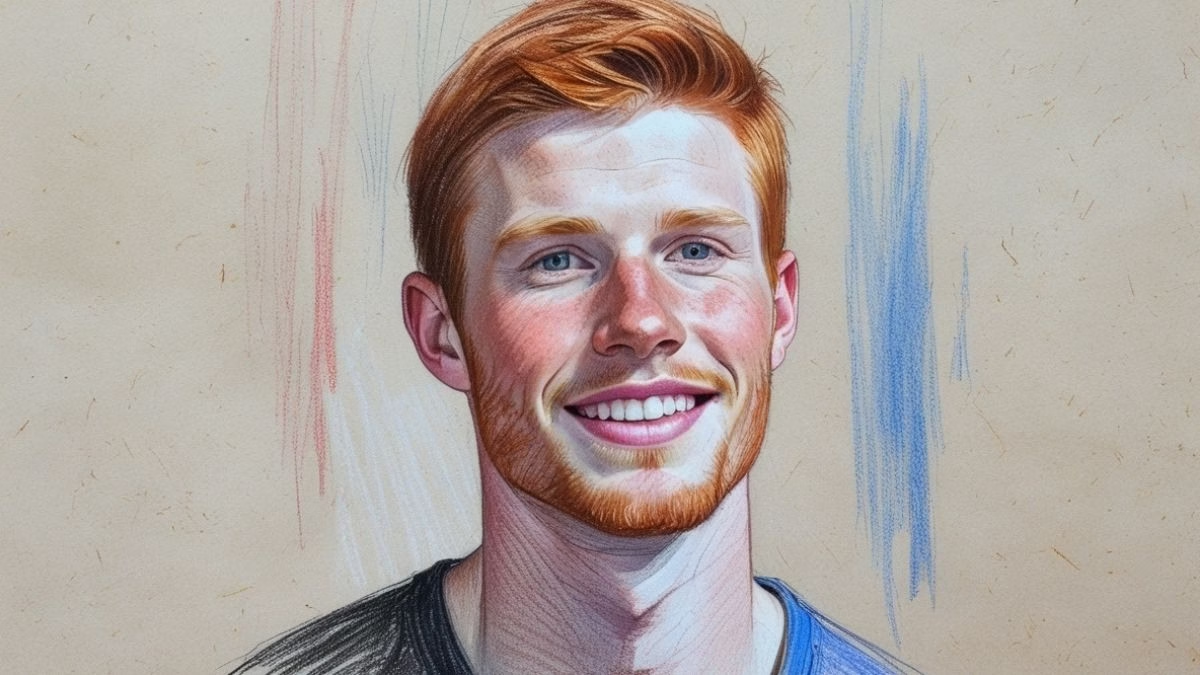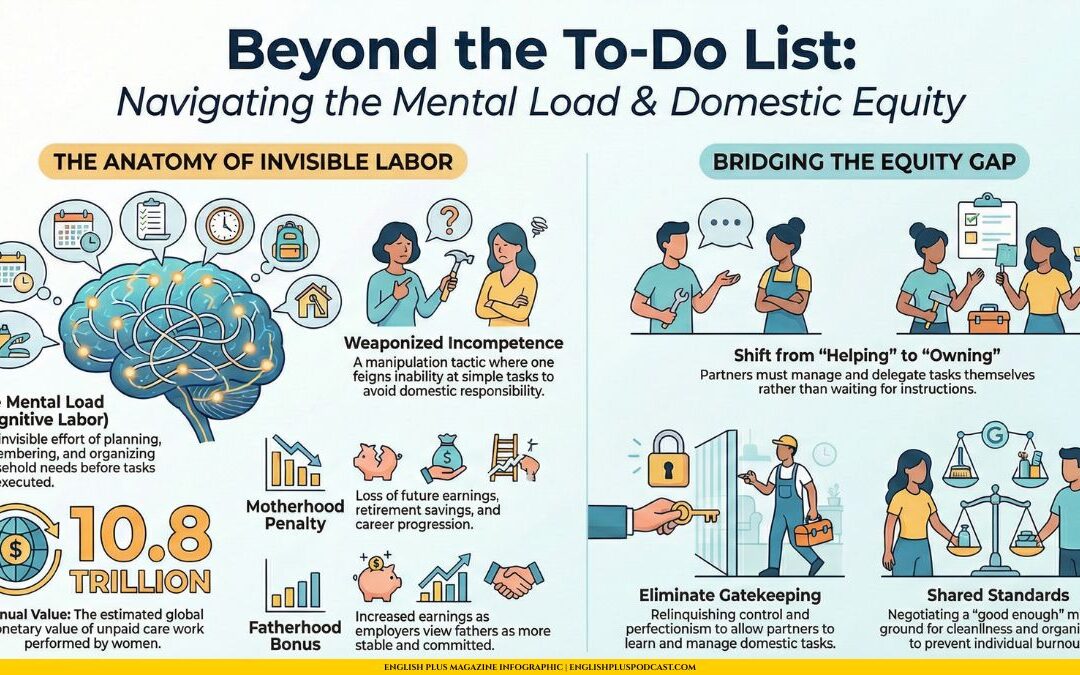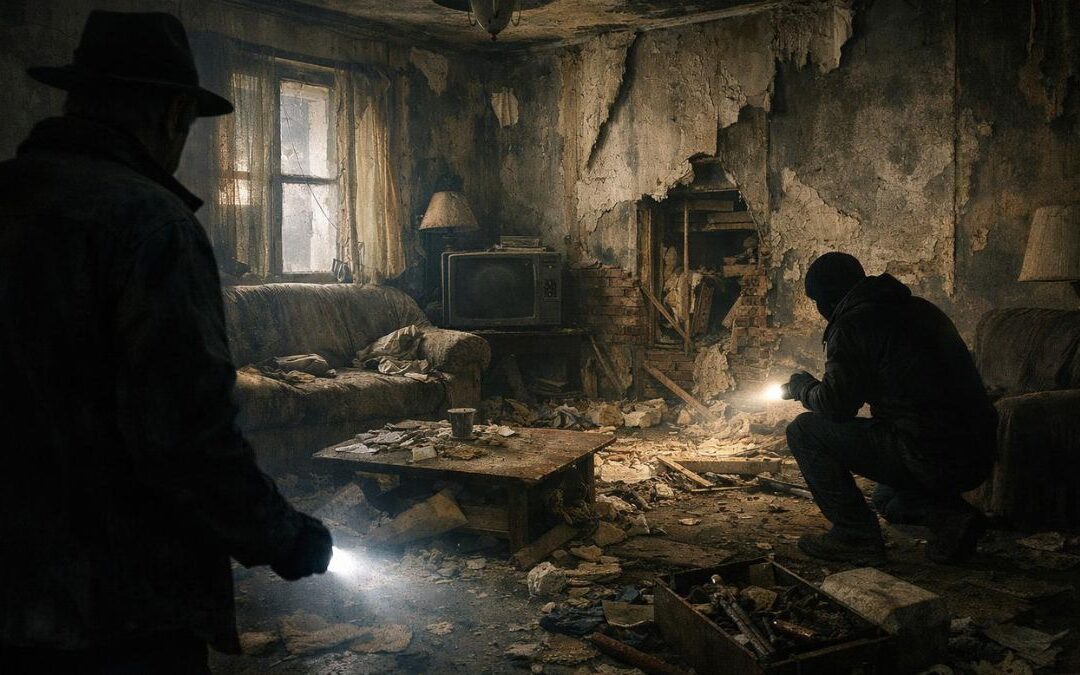SparkCast Episode
The SparkCast episode is not just a reading of the article below; it’s a lively discussion based on the topic of the article, so you don’t want to miss it!
[ppp_patron_only level=5]
The Vanishing_ The Bryce Laspisa Mystery Transcript: Click to Open
The Vanishing The Bryce Laspisa Mystery
Have you ever been on a long drive, you know the kind where the miles just blur together? Oh, yeah, and your mind starts to wander. Maybe you even feel a little lost definitely happens to everyone I think but what if that feeling that sense of being lost Became something much much more right what happens when a totally straightforward journey just to drive home turns into this baffling mystery and a young man just Vanishes Without a trace. It’s chilling to think about tonight.
We’re doing a deep dive into a really heart-wrenching true story It kind of challenges us to look closer at the roads. We all travel, you know, literally and Well emotionally too. Mm-hmm Welcome to another deep dive glad to be here Our mission today really is to unpack the chilling true story of briceless pieces disappearance We want to pull out the most important insights from the details we actually have it’s a tough one it really is It’s a journey into the unknown for sure But also I think a powerful reminder about the hidden struggles people face and you know How important connection is absolutely and this isn’t just some baffling cold-case file sitting on a shelf.
It’s a deeply human story Yeah, it forces us really to ask that crucial question What truly happens when someone just loses their way exactly we’ll look at the the really confusing timeline the strange behaviors leading up to his vanishing and just the Complete lack of answers that has haunted his family for what over a decade now over 10 years. It’s incredible So, okay, let’s start piecing this together Let’s talk about Bryce himself his background and this trip that was supposed to be routine, but just spiraled, right? So Bryce Laspisa, he was 19 a college sophomore at Sierra College Okay, people described him as you know bright well-liked. He had a real passion for graphic design Seemed like a typical kid really sounds like it and the trip.
Well on August 28th 2013 he started what should have been a pretty simple drive about seven hours From his apartment near campus down to his parents place in Laguna Niguel. Okay a standard drive home from college But that’s not what happened. No, his initial route was abandoned pretty quickly and the timeline Well, it just gets incredibly confusing from there Okay, let’s unpack that the journey began but what happened next was far from straightforward Like you said the route changed the timeline gets messy.
Yeah, and that’s putting it mildly There’s this really puzzling 48 hour period that follows 48 hours. Yeah Bryce was driving apparently, but the evidence suggests he wasn’t actually making much progress towards Laguna Niguel So he’s on the road, but not really going anywhere Exactly. We sort of piece this period together from you know, gas station receipts Cellphone pings and a series of really strange calls.
He made mostly to his parents strange Oh, well, for instance at one point he called his mom said he was pulling over to sleep because he was just too tired Okay, that sounds responsible at least initially right except hours later cell records showed he hadn’t moved an inch from that spot He was still there So he said he was stopping to sleep, but then just stayed put for hours without sleeping release without moving on Precisely. It makes you wonder doesn’t it? What does that tell us those initial signs when someone might be, you know losing their way mentally even if they’re physically right there That’s a really profound point I mean for most of us a weird long drive is just fatigue may be bad directions Yeah, but for Bryce the oddness It really started to ramp up the hours leading up to his disappearance were marked by increasingly strange behavior What were some of the most I guess striking things he did or said during that time? Well, the calls to his parents are a big one He called them multiple times right and sometimes he’d sound perfectly fine. Totally normal Bryce other times though He sounded distracted or even incoherent like he was fading in and out Exactly.
It was almost like he was shifting between different states of mind really unsettling for his parents You can imagine I can’t even imagine and it gets even weirder right there were other actions, too Oh, definitely. He apparently told a friend he had something important to talk to him about something serious Did he ever say what it was? No, not that we know and then this is really strange He gave away a pair of diamond earrings Earrings his mom had given him gave them away to who to a friend. Apparently just handed them over.
Wow. Okay, that’s That’s not normal behavior. Mm-hmm, especially something sentimental like that.
Not at all. And then there’s the roadside assistance thing He called them because he ran out of gas Okay, halves of the best of us, I guess true But his parents had just used their own roadside service to bring him gas only a few hours earlier. Wait, so he ran out of gas Twice in a matter of hours and needed help both times.
Yeah It doesn’t quite add up does it? No and the person who helped him the second time the roadside tech What did they say that technician saw him last around 2 a.m. Said Bryce seemed quote out of it But and this is important. He didn’t seem intoxicated not drunk or high just off out of it That’s so vague It really is and what’s fascinating here is how these seemingly disconnected actions, you know Giving away possessions the weird calls needing gas twice How they could point to a significant shift maybe in his mental state or his perception of reality Yeah, Bryce’s last confirmed conversation was with his mom. That was at 2.09 a.m So right after the roadside assistance guy left pretty much and in that call he promised her He was just 15 minutes away from a specific rest stop He said he’d pull over there and finally get some real sleep 15 minutes away.
He promised he promised but He never made it. He never made it to the rest stop. Never this case just tragically highlights those subtle signs You know the indicators of a crisis that maybe get missed or misinterpreted From a behavioral perspective what clues did braces actions really provide things? Maybe we overlook in other situations Well, the giving away of possessions is a classic though often misinterpreted sign the repeated calls for help even for the same problem like running out of gas that suggests a kind of Disorientation maybe or an inability to manage basic tasks and the fluctuating coherence in his calls That points towards a possible break from reality or extreme distress He says it paints a picture of someone really struggling even if they can’t articulate it exactly I may be trying to hide it too, which leads us to the chilling heart of this mystery Because the next part of Bryce’s story is just baffling.
Yeah stark Yeah at 5 30 a.m. Just a few hours after that last call braces SUV a 2003 Toyota Highlander was found On its side the bottom of a 15-foot embankment near Castaic Lake just off the main highway, but definitely crashed crash Okay, and Bryce that’s the thing his wallet his laptop his cell phone They were all still inside the car. His belongings were there but Bryce himself gone Vanished nowhere to be found completely the rear window of the Highlander had been shattered The thinking is maybe he broke it to climb out after the crash okay, so he likely survived the crash and got out but then What then nothing an immediate and massive search started? Helicopters dive teams in the lake search dogs people on foot combing that rugged to everything at it Everything and the result let me guess nothing Absolutely, nothing. No footprints leading away from the crash site.
The dogs couldn’t pick up a scent trail No sign of Bryce anywhere near the car the road or the lake. How is that even possible? No footprints no scent after climbing out of a wreck. It’s the question isn’t it? It’s completely baffling How could someone disappear so utterly so completely from such a thorough search Wow that that lack of any trace? That’s what makes this so profoundly disturbing.
I think the sheer emptiness of the Non-answer for his family. It’s just unimaginable. It truly is.
So, okay. What does this all mean for Bryce for his family? This absence of answers must be just constant egg. Oh, absolutely and without a body Without any definitive evidence Theories start to fly naturally you have to consider everything.
So what are the main ones? He could have been disoriented from the crash maybe already suffering that mental health crisis We talked about and just wandered off into the wilderness Plausible given the terrain. It’s rough out there or maybe he intentionally disappeared Wanted to start a new life leave everything behind. It’s a theory people often turn to in these cases Less likely perhaps given he left his wallet and phone, but you can’t rule it out entirely Foul play has to be considered too, right? Could someone else have been involved? Maybe met him at the crash site It’s always a possibility in any disappearance though There wasn’t immediate evidence pointing that way the scene no signs of a struggle outside the vehicle for instance Some people speculated about substance use drugs maybe but his friends push back on that didn’t they? Yeah, they insisted he wasn’t a heavy partier not into hard drugs and the roadside tech didn’t think he was intoxicated just out of it But you know substances can affect people differently true, but his behavior Giving away the earrings the weird calls That really does seem to point strongly towards some kind of psychological break, doesn’t it? It fits a lot of the pieces.
Yes a sudden onset psychosis or a severe depressive episode with psychotic features It could explain the incoherence the strange actions the disorientation and if he did wander off in that state in that remote area It’s entirely possible. He succumbed to the elements exposure dehydration. It wouldn’t take long in that environment, especially if he was injured or disoriented So while a psychological break seems maybe the most plausible explanation for the behavior Are there parts that don’t quite fit or other things investigators had to consider? Well, the complete lack of a trace is the biggest sticking point for almost any theory Even if someone wanders off you’d expect something a footprint a piece of clothing a scent for the dogs to follow for at least a little The vanishing seems almost supernatural though, obviously it wasn’t it just means whatever happened happened in a way that left no clues Maybe he got a ride.
Maybe he went into the lake divers searched but lakes can be tricky. It’s the not knowing that’s just unbearable Absolutely, and if you connect this to the bigger picture, you know missing persons cases Generally the psychological impact of an open-ended mystery like this is just immense. It’s a specific kind of trauma Yeah with nobody ever found his family the investigators They’re just left with questions this painful lingering uncertainty The case is still open officially and his parents have kept hope alive for over 10 years Still raising awareness still searching they have Bryce’s journey when you piece it together from those fleeting Selpings and strange calls it reveals something pretty terrifying I think which is that a person can be right there physically present driving a car But be utterly lost inside operating under a completely different internal logic Wow So the insight here isn’t just you know connect with people It’s maybe more about understanding how crucial it is to interpret these escalating seemingly illogical behaviors To see them as potential signals of really profound distress Even when the person seems to be on the surface functioning this story is terrifying because it is real But like you said earlier, maybe there’s also a message in it about how we interact with each other I think so.
It’s been described this story as a kind of powerful call to action Maybe an inspiration to be better for each other So well, it’s such a stark reminder, isn’t it? But the people we love people who seem fine might be on a really difficult road internally. Yeah fighting battles We know nothing about exactly so it encourages us to you know, check in Really check in ask the hard questions sometimes and listen not just to the words Someone says but maybe to the silence in between or the things that don’t quite add up like Bryce’s repeated calls for gas Precisely it inspires us where it should to try and create a world or at least circles within our own lives Where it’s okay to say, you know what? I’m not okay I feel lost without fear of judgment or dismissal, right? And maybe overcoming our own challenges sometimes starts by just helping someone else through theirs being that person who notices who listens So synthesizing this it really comes down to compassion doesn’t and vigilance Yeah, building communities where it’s safe to be vulnerable. I think that’s a huge part of it Bryce’s baffling 48-hour period where he was driving but seemed stuck not making progress It forces us to consider that maybe sometimes the greatest internal struggle manifests as this literal inability to move forward It blurs those lines between physical and mental disorientation.
Yeah This whole deep dive into Bryce Lispy’s the story it really does remind us that while some paths are literal roads we drive on others are these internal journeys journeys people might be taking completely in silence and His disappearance with its chilling lack of a clear answer. It forces us to confront this really profound uncertainty Beyond just searching for physical traces How do we you know as a society get better at noticing the unseen vanishing acts the moments where minds start to wander off-road? So to speak before someone is truly lost. That’s the million-dollar question, isn’t it? I think the most valuable knowledge often comes from really trying to understand and apply lessons from Experiences like this even incredibly difficult ones like Bryce’s.
Yeah, this case just underscores how vital it is to simply be Present be observant for the people we care about and also to recognize that there isn’t always one simple answer multiple perspectives Multiple possibilities they always enrich our understanding even if they don’t give us the closure We crave closer is something his family may never get sadly Thank you for joining us on this deep dive. It’s been heavy but important indeed. Thank you We really hope this conversation has given you both some information Maybe some things to think about and perhaps a renewed sense of compassion for the unseen struggles happening all around us Stay curious keep exploring and remember to reach out to those who might need an extra hand Let them know the road doesn’t have to be traveled alone.
We’ll see you on the next deep dive
[/ppp_patron_only]
Have You Ever Felt a Little Lost?
Have you ever been on a long drive, the kind where the miles blur together and your mind starts to wander? It’s a common feeling. But what happens when that feeling of being lost becomes something more? What happens when the road leads to nowhere? In the early morning hours of August 30, 2013, a 19-year-old college student named Bryce Laspisa was on that kind of drive. And somewhere along a dark stretch of California highway, he vanished. The mystery of the disappearance of Bryce Laspisa is not just a baffling cold case; it’s a heart-wrenching story that forces us to think about the roads we all travel, both literally and emotionally.
The Drive Begins
Bryce Laspisa was a sophomore at Sierra College, a bright, well-liked kid with a passion for graphic design. On August 28, he began what should have been a straightforward drive from his apartment near campus to his parents’ home in Laguna Niguel, about 7 hours away. But he didn’t go straight home. The timeline of the next 48 hours is a confusing puzzle pieced together from gas station receipts, cell phone pings, and a series of strange calls to his parents. He was driving, but he wasn’t making progress. At one point, he called his mom to say he was pulling over to sleep because he was too tired, yet hours later, cell records showed he hadn’t moved.
A String of Strange Encounters
The hours leading up to his disappearance were marked by odd behavior. He called his parents multiple times, sometimes sounding fine, other times distracted or incoherent. He told a friend he had something important to talk to him about. He gave away a pair of diamond earrings his mom had given him. He called for roadside assistance after running out of gas, even though his parents had just used their own roadside service to bring him fuel a few hours earlier. The roadside technician who saw him last, around 2 AM, said he seemed “out of it,” but not intoxicated. Bryce’s last confirmed conversation was with his mom at 2:09 AM, where he promised he was just 15 minutes away from a rest stop where he would sleep. He never made it.
The Crash Scene
At 5:30 AM, Bryce’s 2003 Toyota Highlander was found on its side at the bottom of a 15-foot embankment near Castaic Lake, just off the main highway. His wallet, laptop, and cell phone were still inside the car. But Bryce was gone. The rear window had been shattered, possibly for him to climb out. An extensive search of the rugged terrain and the lake began immediately, involving helicopters, dive teams, and search dogs. They found nothing. No footprints. No scent trail. No Bryce.
Theories and Heartbreak
So what happened? Did Bryce, disoriented and possibly suffering a mental health crisis, wander off into the wilderness? Did he intentionally disappear to start a new life? Or did he meet with foul play? Some speculate he may have been under the influence of a substance, though his friends insisted he wasn’t a heavy partier. The behavior—giving away possessions, the strange calls—could point to a psychological break. The area where his car was found is remote, and it’s possible he succumbed to the elements. But with no body ever found, his family and investigators are left with only questions.
A Spark of Encouragement from a Dark Story
It’s easy to get lost in the darkness of a story like this. It’s terrifying because it’s real. But within this tragedy, there is a powerful call to action, an inspiration to be better for each other. Bryce’s story is a stark reminder that the people we love might be on a difficult road, even when they seem fine. It’s a reminder to check in, to ask the hard questions, to listen not just to the words but to the silence in between. It encourages us to create a world where it’s okay to say, “I’m not okay. I feel lost.” Overcoming our own challenges often starts by helping someone else through theirs.
The Unending Search
For over a decade, Bryce Laspisa’s parents have held onto hope. They continue to raise awareness, hoping for a tip, a sighting, a clue that will finally tell them what happened to their son. The case remains open, a painful, lingering question mark. It’s a story that challenges us to be vigilant, to be compassionate, and to never give up on the ones who have lost their way.
Final Thoughts
This story is a powerful reminder to reach out. Without sharing any private details, what is one way you can check in on a friend or family member this week, just to let them know you’re there and the road doesn’t have to be traveled alone? Share your ideas for connection in the comments.
Discussion Questions
- Bryce’s friends and family were shocked by his disappearance, suggesting he may have been hiding his struggles. Why do you think people, especially young people, often feel pressured to hide their mental health challenges?
- In the age of social media, where everyone curates a “perfect” life, how can we foster more genuine and honest conversations about our struggles?
- If you were a friend of Bryce’s in those final days, what signs might have alerted you that something was wrong, and what could you have done?
Speaking Challenge
This is a challenge about offering support. Imagine your friend has been acting distant and unlike themselves lately. Take one to two minutes to script out a voicemail you would leave them, expressing your concern and offering help without being judgmental.
- Hint 1: Start with a warm, casual opening. “Hey, it’s me. I was just thinking about you and wanted to see how you’re doing.”
- Hint 2: Gently state your observation without accusation. “It seems like you’ve been a bit quiet lately, and I just wanted to make sure everything’s okay.”
- Hint 3: Offer specific, unconditional support. “No pressure to talk, but please know I’m here for you if you need anything at all—a chat, a distraction, anything. Just call me back when you get a chance.”
The goal is to practice expressing empathy and creating a safe space for someone to open up.










0 Comments